By Admiral William H. McRaven
Sea Stories begins in 1963 at a French officers' club in France, where Allied officers and their wives gathered to have drinks and tell stories about their adventures during World War II - the place where a young Bill McRaven learned the value of a good story. Sea Stories is an unforgettable look back on one man's incredible life, from childhood days sneaking into high-security nuclear sites to a day job of hunting terrorists and rescuing hostages.
Naval Intelligence Professionals Bookshelf
A Recommended Reading List
Led by RADM Tom Brooks (Ret.) and ISCM Dave Mattingly (Ret.), NIP has constructed a list of books (fiction and non-fiction) which are considered to be “classics” in each of the intelligence disciplines.
The beginnings of this list are included below. The object is to list two or three of the best books in each discipline, and we anticipate that the list will undoubtedly change over time as the readership suggests books that they consider better than the ones on the current list.

SUBJECTS
- *MUST READ* (6)
- China (9)
- Counterintelligence (4)
- Cyber & Information Warfare (3)
- Fiction (5)
- Human Intelligence (HUMINT) (2)
- Intelligence Analysis/Indications and Warning (5)
- Intelligence and National Decision-making (5)
- Leadership (11)
- Naval Intelligence History (General) (9)
- Naval War College Digital Commons (3)
- Other Reading Lists/Key Resources (11)
- Special Operations / Counter Terrorism (3)
- WWI/WWII/Cold War (12)
*MUST READ* China Counterintelligence Cyber & Information Warfare Fiction Human Intelligence (HUMINT) Intelligence Analysis/Indications and Warning Intelligence and National Decision-making Leadership Naval Intelligence History (General) Naval War College Digital Commons Other Reading Lists/Key Resources Special Operations / Counter Terrorism WWI/WWII/Cold War
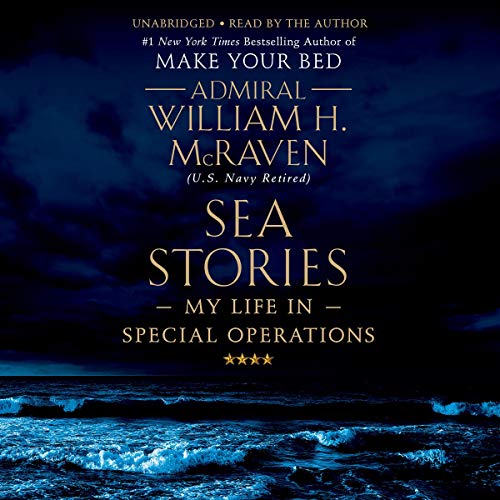
Sea Stories: My Life in Special Operations
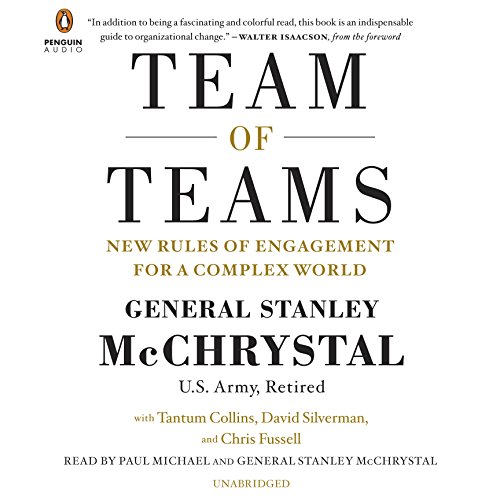
Teams of Teams
By General Stanley McChrystal
Former general Stanley McChrystal held a key position for much of the War on Terror, as head of the Joint Special Operations Command. In Iraq he found that despite the vastly superior resources, manpower, and training of the US military, Al Qaeda had an advantage because of its structure as a loose network of small, independent cells. Those cells wreaked havoc by always staying one step ahead, sharing knowledge with each other via high-tech communications.
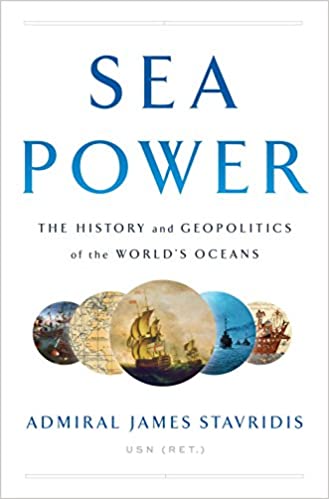
Seapower
By Admiral James Stavridis
From one of the most admired admirals of his generation—and the only admiral to serve as Supreme Allied Commander at NATO—comes a remarkable voyage through all of the world’s most important bodies of water, providing the story of naval power as a driver of human history and a crucial element in our current geopolitical path.
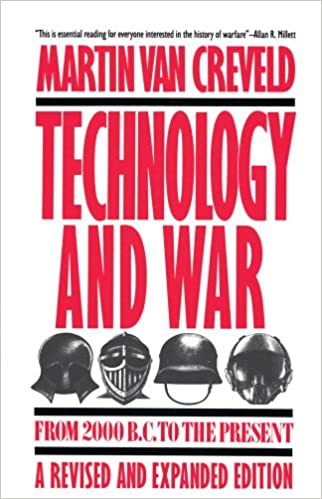
Technology and War
By Martin Van Creveld
In this impressive work, van Creveld considers man's use of technology over the past 4,000 years and its impact on military organization, weaponary, logistics, intelligence, communications, transportation, and command. This revised paperback edition has been updated to include an account of the range of technology in the recent Gulf War. 12 photographs.

From Beirut to Jerusalem
By Thomas Friedman
One of the most thought-provoking books ever written about the Middle East, From Beirut to Jerusalem remains vital to our understanding of this complex and volatile region of the world. Three-time Pulitzer Prize winner Thomas L. Friedman drew upon his ten years of experience reporting from Lebanon and Israel to write this now-classic work of journalism. In a new afterword, he updates his journey with a fresh discussion of the Arab Awakenings and how they are transforming the area, and a new look at relations between Israelis and Palestinians, and Israelis and Israelis.
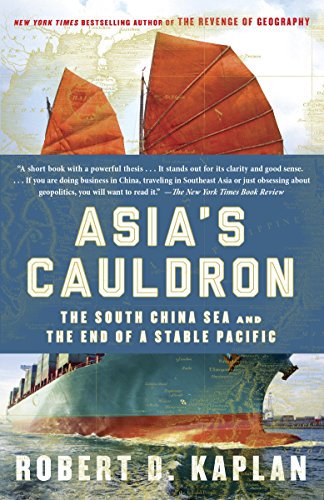
Asia's Cauldron
By Robert D. Kaplan
In Asia’s Cauldron, Robert D. Kaplan offers up a vivid snapshot of the nations surrounding the South China Sea, the conflicts brewing in the region at the dawn of the twenty-first century, and their implications for global peace and stability. One of the world’s most perceptive foreign policy experts, Kaplan interprets America’s interests in Asia in the context of an increasingly assertive China. He explains how the region’s unique geography fosters the growth of navies but also impedes aggression. And he draws a striking parallel between China’s quest for hegemony in the South China Sea and the United States’ imperial adventure in the Caribbean more than a century ago
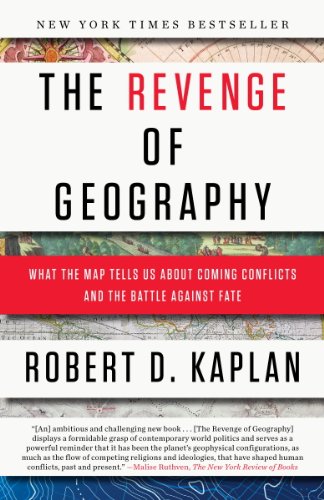
The Revenge of Geography
By Robert D. Kaplan
NEW YORK TIMES BESTSELLER • In this provocative, startling book, Robert D. Kaplan, the bestselling author of Monsoon and Balkan Ghosts, offers a revelatory new prism through which to view global upheavals and to understand what lies ahead for continents and countries around the world.
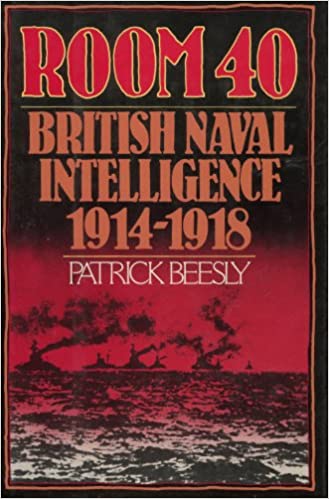
Room 40: British Naval Intelligence 1914-1918
By Patrick Beesley
Recounts World War I intelligence operations of the British, shows how broken German codes were used to help control the shipping lanes, and identifies the events in which Naval Intelligence played a key role.

The Admiral's Advantage
by Christopher Ford and David Rosenberg
The Admiral’s Advantage by Christopher Ford and David Rosenberg . Written by Naval Intelligence (reserve) veterans, this book is an in depth look at what US Navy “OPINTEL” is, how it developed and its critical role in the Cold War. This book focuses on the development of the OSIS system and how Naval Intelligence used deep penetration and all source analysis to help drive the creation of the 1980’s Maritime Strategy and provide global surveillance and tracking of the Soviet Navy’s strategic threat from nuclear ballistic missile submarines. An exceptionally well written book by authors who had full access to Navy sources and a practitioner’s understanding and feel for the craft of Naval Intelligence.
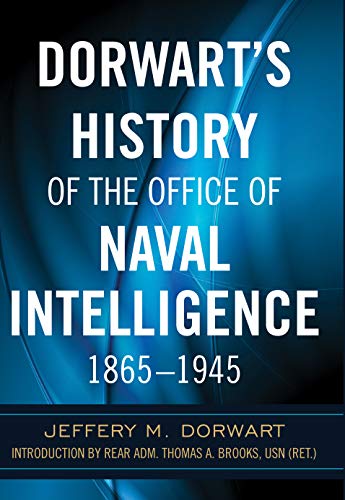
History of the Office of Naval Intelligence1865-1945
By Jeffrey Dorwarts
This is the history of the founding in 1882 and operation through two world wars of America's first permanent intelligence agency, the Office of Naval Intelligence. In this study Dr. Jeffery M. Dorwart shows how and why a tiny late 19th century U.S. Navy bureau created to collect information about foreign warship design became during two world wars a complex and sometimes troubled domestic and worldwide intelligence agency. More significantly, this history of O.N.I. demonstrates how the founders and first generations of U.S. naval officers trained to man warships at sea confronted what seemed an inherent dilemma in new missions that interfered with providing technical and operational information to their navy.
